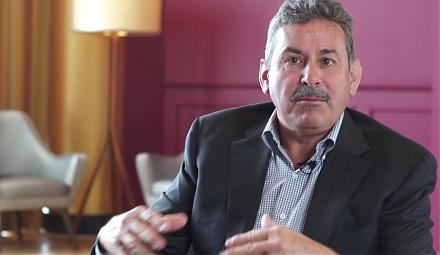

2018-06-17 10:35:00 Sun ET
federal reserve monetary policy treasury dollar employment inflation interest rate exchange rate macrofinance recession systemic risk economic growth central bank fomc greenback forward guidance euro capital global financial cycle credit cycle yield curve
In the past decades, capital market liberalization and globalization have combined to connect global financial markets to allow an ocean of money to flow through them. In emerging-economies, the gross foreign financial position can be as large as annual GDP. In rich economies, the ratio can rise even more. Given the sheer size of cross-border capital flows, these co-movements can have enormous effects on local economic conditions.
The capital flows across borders is good since financial openness allows investors in rich countries to seek out large returns in capital-scarce emerging-economies. Yet, capital flows may not always follow this peculiar pattern. Money can often flow in the other direction. Less mature emerging-economies often save to safeguard against fickle global financial markets and hence amass large quantities of foreign-exchange reserves. This global savings-glut suggests that an ocean of money can swamp individual economies. The U.S. Federal Reserve determines the turn of the tide. American monetary policy shapes the global appetite for risk because of the dollar's exorbitant privilege in global finance. When the Fed changes course, asset prices, returns, and market volatilities move in its wake, with all sorts of inadvertent consequences for other countries.
Most economies face a fundamental dilemma: these economies can choose open capital markets to attract the foreign investment that emerging markets need to reinvigorate their economic climate, but only if these economies can accept losing domestic control over the global business cycle. For many emerging-economies, this inexorable trade-off seems to be a fair price to pay in global finance. However, when the Fed eventually raises its interest rate, the trade-off will then tilt toward a capital exodus from emerging-economies back to America. When push comes to shove, the law of inadvertent consequences counsels caution.
If any of our AYA Analytica financial health memos (FHM), blog posts, ebooks, newsletters, and notifications etc, or any other form of online content curation, involves potential copyright concerns, please feel free to contact us at service@ayafintech.network so that we can remove relevant content in response to any such request within a reasonable time frame.
2024-05-27 03:23:34 Monday ET

Stock Synopsis: Life insurers emphasize profit margins over sales growth rates. We review and analyze the recent market share data in the U.S. life insur
2024-02-04 08:28:00 Sunday ET

Our proprietary alpha investment model outperforms most stock market indexes from 2017 to 2024. Our proprietary alpha investment model outperforms the ma
2022-02-05 09:26:00 Saturday ET

Modern themes and insights in behavioral finance Shiller, R.J. (2003). From efficient markets theory to behavioral finance. Journal of Economi
2020-04-03 09:28:00 Friday ET

The Intel trinity of Robert Noyce, Gordon Moore, and Andy Grove establishes the primary semiconductor tech titan in Silicon Valley. Michael Malone (2014)
2018-09-03 09:31:00 Monday ET

Amazon follows Apple to become the second American public corporation to hit $1 trillion stock market valuation. Amazon's founder and chairman Jeff Bezo
2025-07-12 11:35:00 Saturday ET

Mitch Anthony explains why it is now more important for top sales leaders to apply social skills and emotional competences to fulfill customer needs, wants,